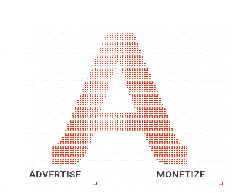Day 1: Introduction to Taxation in Pakistan – A Beginner’s Guide
Taxation is not just a government obligation—it’s a civic responsibility and a cornerstone of a stable economy. If you’re living, earning, or doing business in Pakistan, understanding how the tax system works can empower you to make informed financial decisions, stay compliant with the law, and even save money in legal ways.
Whether you’re a salaried professional, a freelancer, an entrepreneur, or even a student entering the workforce, this 30-day series will help you learn everything about tax preparation and filing in Pakistan. Let’s begin with the fundamentals.
What is Taxation?
Taxation refers to the mandatory financial charges imposed by the government on individuals, companies, or property to fund public spending and national development. Tax revenue supports infrastructure, defense, education, healthcare, social welfare programs, and much more.
In Pakistan, taxation is regulated and collected by the Federal Board of Revenue (FBR) and various provincial tax authorities.
Key Objectives of Taxation in Pakistan
- Generate revenue for government functions
- Encourage economic equality through progressive taxation
- Discourage consumption of harmful goods via duties and levies
- Improve transparency in the financial system
- Document the economy by promoting taxpayer compliance
What is FBR and What Does It Do?
The Federal Board of Revenue (FBR) is Pakistan’s premier tax collection authority. It works under the Ministry of Finance and is responsible for:
- Assessing and collecting taxes (both direct and indirect)
- Enforcing tax laws and investigating tax evasion
- Monitoring national and international financial activities
- Facilitating taxpayers through services like the IRIS Portal
- Maintaining the Active Taxpayers List (ATL)
The IRIS Portal is FBR’s online system where individuals and businesses can register their NTN, file income tax returns and wealth statements, and access notices, refund status, and audit details.
Types of Taxes in Pakistan
Taxes in Pakistan are broadly categorized into two types:
1. Direct Taxes
These are paid directly to the government and are based on income or wealth:
- Income Tax
- Capital Gains Tax
- Corporate Tax
2. Indirect Taxes
These are included in the price of goods and services and are paid indirectly:
- Sales Tax
- Federal Excise Duty (FED)
- Customs Duty
Understanding the difference between direct and indirect taxes is vital for effective tax planning and compliance.
Who Needs to Understand Taxation?
Tax laws in Pakistan apply to:
- Salaried employees (earning more than the taxable threshold)
- Self-employed professionals and freelancers
- Business owners and retailers
- Landlords and property dealers
- Investors earning from dividends, capital gains, or mutual funds
- Non-resident Pakistanis (NRPs) with Pakistan-source income
Even if your income is not taxable, registering and filing returns can help you benefit from lower withholding taxes and being included in the ATL (Active Taxpayers List).
Benefits of Understanding and Complying with Tax Laws
- Avoid legal issues: Late or inaccurate filing can result in penalties or audits.
- Save money legally: Know which rebates, credits, and deductions apply to you.
- Get listed on ATL: Enjoy reduced tax rates on banking, property, and contracts.
- Build financial credibility: Required for loan applications, visa processing, tenders, etc.
- Contribute to national development: Taxes fund essential services for all citizens.
What Are Your Rights as a Taxpayer in Pakistan?
As a registered taxpayer, you have the right to:
- Accurate information from FBR
- File complaints and appeals
- Claim legitimate tax credits and refunds
- Expect privacy and protection of personal financial data
- Seek help from FBR helplines and online systems
Your Responsibilities as a Taxpayer
- Obtain an NTN and register with FBR
- Maintain records of income and expenses
- File tax returns annually using the IRIS portal
- Submit wealth statements if applicable
- Pay taxes by due dates to avoid surcharges or penalties
Common Mistakes to Avoid
- Ignoring FBR notices or emails
- Failing to declare freelance or side income
- Not filing NIL returns if required
- Using incorrect tax rates or codes
- Forgetting to submit wealth statement
This course will help you navigate these issues easily over the next 30 days.
✅ Take Action Today
Don’t wait for tax season to understand your obligations. Start early, plan ahead, and stay compliant. Whether you are salaried, self-employed, or running a small business, gaining control of your tax affairs is a critical life skill. This concludes our “Introduction to Taxation in Pakistan – A Beginner’s Guide” Blog Post.
Up Next: Day 2 – Who Needs to File Income Tax Returns in Pakistan?
📌 Tax Preparation & Filing Services by MTF & Co. at One Web One Hub 
Struggling with filing taxes on your own? Let MTF & Co., operating under One Web One Hub, make the process smooth and stress-free. We offer professional, affordable, and fully compliant tax services for individuals and businesses across Pakistan.
🔧 Our Services Include:
- Income Tax Return Filing
- Wealth Statement Preparation
- NTN Registration & ATL Maintenance
- Freelancer & IT Exporter Tax Compliance
- Annual Filing for Salaried & Self-Employed
- Audit Representation & Tax Planning
💡 Why Choose Us?
- Certified & Experienced Tax Professionals
- Hassle-free Online Process
- Quick Turnaround
- Trusted by Local & Overseas Pakistanis
- Full Confidentiality and Support
📞 Contact Us Today:
WattsApp: +923369324829
Email: mtfco@onewebonehub.com
Visit: onewebonehub.com
Stay legal. Save money. Simplify your tax life with MTF & Co.




